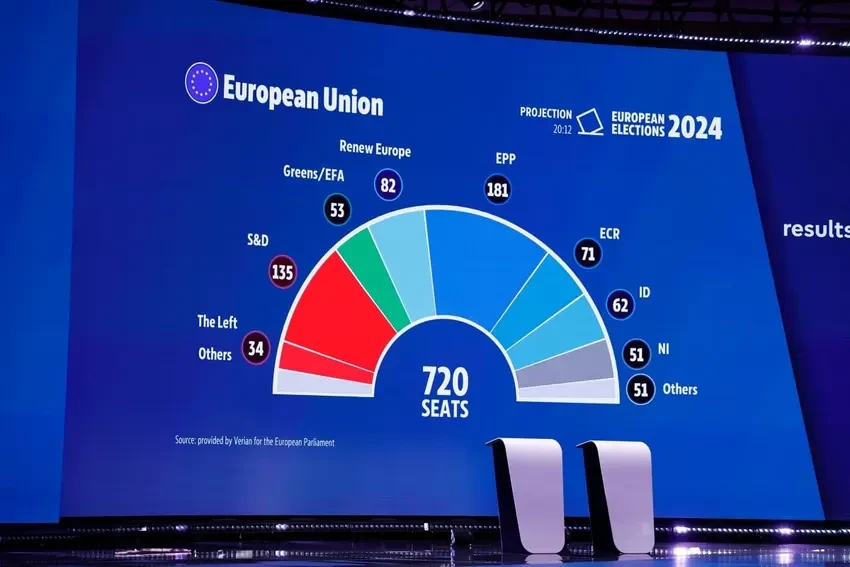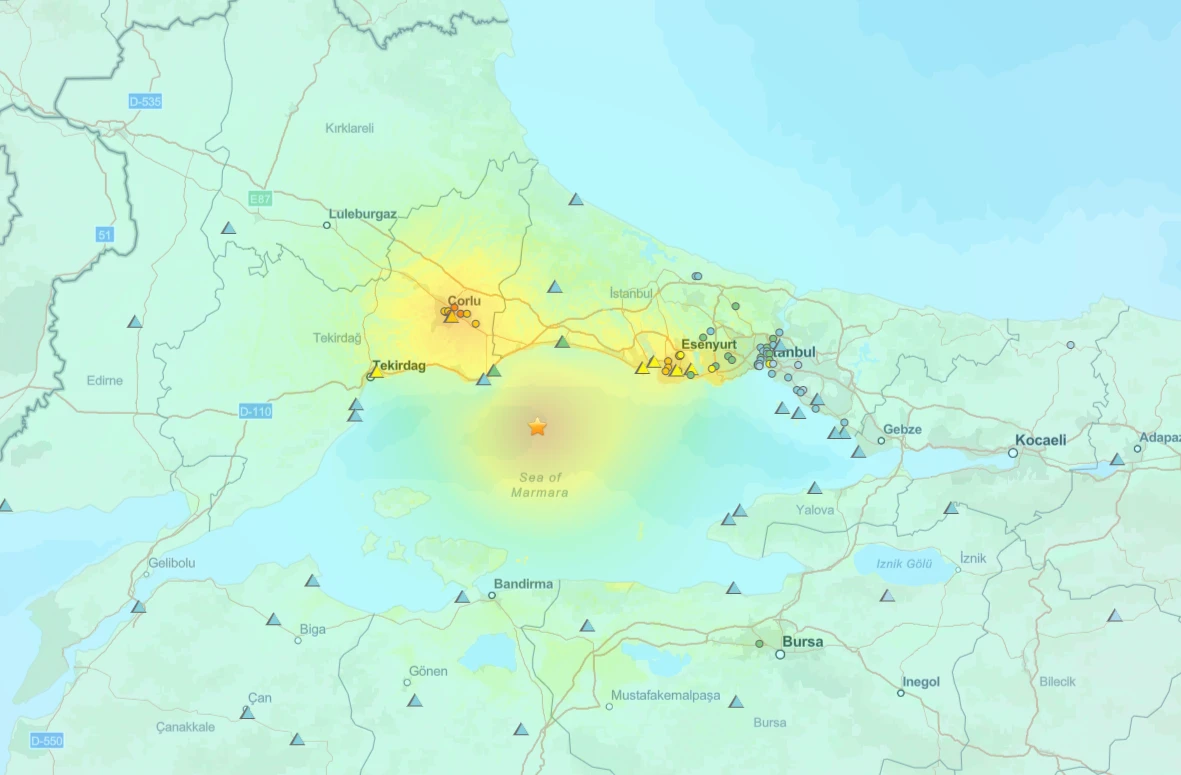Ankara’s take on EP election outcomes: Columnist insight
 This photographe taken in the European Parliament hemicycle in Brussels shows a screen displaying the first projections of the future composition of the assembly after the announcement of the results of the European Parliament election on June 9, 2024. (AFP)
This photographe taken in the European Parliament hemicycle in Brussels shows a screen displaying the first projections of the future composition of the assembly after the announcement of the results of the European Parliament election on June 9, 2024. (AFP)
The recent European Parliament elections in 27 European countries showed a decline in support for centrist parties, with far-right and radical parties gaining traction. These parties advocate strong anti-refugee policies, reflecting a significant shift in the political landscape across Europe.
In her column for the Turkish daily Hurriyet, Hande Firat evaluates the interpretation of the recent European Parliament election results in Ankara. She highlights the key changes since the 2019 elections and explores the reasons behind the surge in far-right support.
Firat argues that the outcomes of the EP elections may present challenges for Türkiye’s EU membership ambitions. However, she suggests that there might be a shift towards prioritizing the development of trade relations. Despite potential hurdles hindering full membership, Europe could demonstrate an interest in strengthening economic ties with Türkiye.
Primary concern: Refugee influx
- Firat suggests that the influx of Syrian refugees followed by the conflict in Ukraine has increased the number of refugees in Europe.
- European voters, as Firat observes, are complaining about a significant portion of resources being allocated to refugees.
- Firat notes the pandemic, conflicts, and refugees have shaken the European economy.
- Recently, there have been concerns about inflation, unemployment, agricultural difficulties, and reactions, even protests, against high prices.
- Far-right parties, Firat argues, are capitalizing on these issues. Particularly, the narrative of “Why should resources go to others when I can’t even fix myself?” stands out.
Potential effects on Türkiye
In her column, Firat discusses the implications of the rise of far-right leaders in Europe, specifically Italian Prime Minister Giorgia Meloni and French National Rally leader Marine Le Pen, who have assumed quasi-leadership roles. Both leaders are critical of the burdens they believe the EU imposes. Firat questions how this shift might affect Türkiye.
Opposition to expansion without deepening
- Firat suggests that Türkiye may face challenges in its membership process. This concern is not limited to Türkiye alone. There may be no progress in the membership processes of the Balkan countries because the far-right in Europe opposes expansion without deepening.
- From Ankara’s perspective, as Hande Firat points out: “Europe will aim to keep Türkiye at arm’s length regarding membership but will seek to develop trade relations.”
Realpolitik of far-right
- When it comes to the realpolitik aspect of the rising far-right in Europe, Firat emphasizes economics, the search for new markets, and bridging countries to the forefront.
- Türkiye’s rising profile and prioritization of projects like the development corridor position it as both a bridge country and a significant market due to its population.
- Far-right parties in Europe, concerned about the expanding influence of the U.S. and China, are considering prioritizing their own spheres of influence. This shift also highlights Türkiye’s growing importance in bilateral and economic relations.



